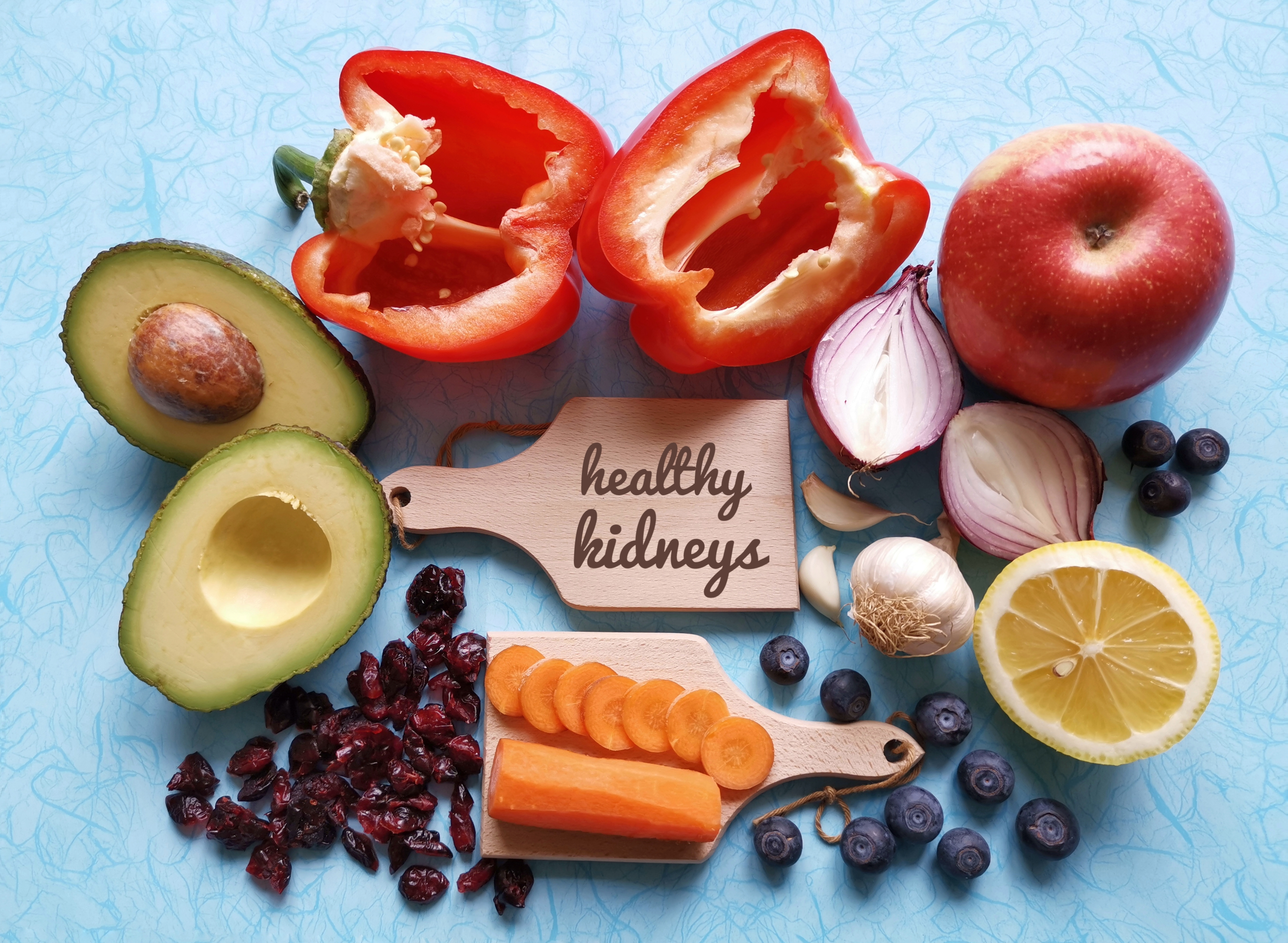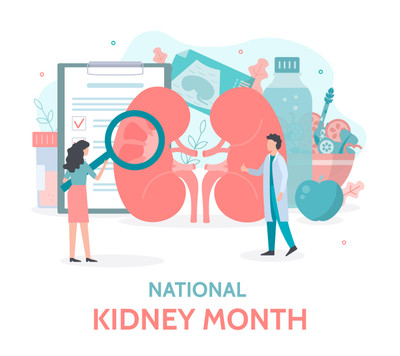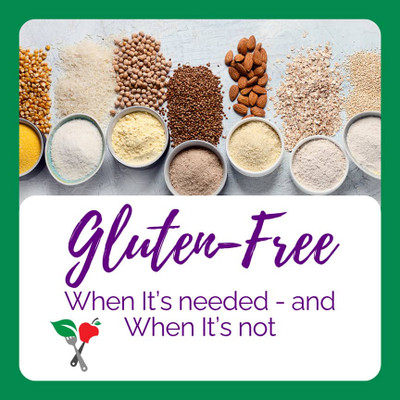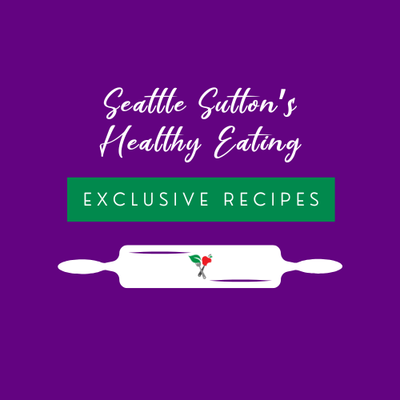New Kidney Diet Recommendations
It is estimated that 15% of American adults have chronic kidney disease (CKD) or approximately 37 million people. Nutrition recommendations for kidney disease have always focused on limiting certain nutrients, such as sodium, phosphorus, and potassium. When the kidneys aren’t working properly, waste and fluids can build up in the body which can lead to different health problems. The focus of the diet for CKD is to help control the amount of these nutrients you eat to help control the levels of these nutrients in your body.
Many health conditions that can arise from an unhealthy lifestyle are risk factors for developing kidney disease. These include diabetes, high blood pressure, heart disease, and obesity. Other risk factors include family history and age. The management for many of these conditions focuses on the same things such as reaching and maintaining a healthy weight, exercising regularly, quitting smoking, limiting alcohol, and following a healthy diet.
Diet education for CKD often focuses on avoiding certain foods and patients are given a long list of foods to not eat, which were generally very healthy foods. By restricting certain foods, many people were following a diet lower in nutrient-rich foods and eating more processed foods. They would be told to eat less sodium but then given an extensive list of fresh foods to omit from their diet. Confusion would arise because the diet they were told to follow for their heart or diabetes didn’t match up with what they were being told to eat for their CKD.
Many people with CKD also are battling other health conditions for which a healthy, balanced diet is important. Consider that:
- 50-75% have high blood pressure
- 40% of people with CKD also have diabetes
- 65% also have cardiovascular disease
Newer research and guidelines have recommended focusing on total diet quality and more plant foods. It is thought that this approach along with individualized nutrition recommendations may help slow the progression of CKD better than strict nutrient limits. Focusing on what to eat rather than what not to eat can help empower you with your diet and also help you better understand to best eat to manage all of your health concerns.

Recently, there have been more recommendations to follow a diet similar to the Mediterranean, DASH, or vegetarian diet for better kidney health. This has left many patients confused because these diets emphasize a lot of the foods that they were told to avoid such as fruits, vegetables, and whole grains.
Newer studies have found that following a plant-based diet was connected to improved kidney health, lower rates of CKD, and those with CKD who adopted these eating practices slowed their disease progression. A diet rich in plant foods can slow kidney disease, improve blood pressure, and diabetes management.
Eating about 5 servings of fruits and vegetables a day lends heart-protective and anti-inflammatory benefits. Plant foods can help to:
- Decrease inflammation
- Increase fiber intake & improve gut health
- Provide lean protein
- Help control hunger & weight
- Provide heart-healthy fats
It is important to note that research has found that phosphorus and potassium found in plant foods are not absorbed well, whereas animal sources are more bioavailable.
A plant-based diet is not a solely vegetarian or vegan diet rather it is a diet that emphasizes whole foods that are from mother nature. Meat, poultry, fish, and dairy products can still be included but they are not the main focus of meals and snacks. Animal foods are thought of more as a side dish and the diet may include a variety of vegetarian and non-vegetarian meals.
When planning a diet for kidney disease, it is better to focus on overall diet quality rather than avoiding certain healthy, unprocessed foods and to focus more on portion control rather than avoidance. Many times, it is recommended to have less than 2300 mg of sodium and 2000 mg of potassium per day. Depending on your food choices you may find that you can fit different foods in your diet and include better variety and nutrition when focusing on your total diet and portions rather than choosing foods just because they are low in sodium or potassium but are nutrient-poor.
When planning our meal plans at Seattle Sutton’s Healthy Eating, we aim to provide the body with a variety of nutrient-rich foods without any unnecessary restrictions and aim for our plans to help address multiple health conditions rather than just focusing on one. For example, eating a diet with low amounts of fruits and vegetables and more processed grains may align with the list of foods to avoid for CKD but may not be the best choice for your heart or blood sugar control.
Our 1200-calorie meal plan is the most popular plan for those looking for a plan for CKD. It averages 1500 mg of sodium per day and if you swap the dairy additions with a kidney-friendly item, such as unsweetened almond milk or an apple, it averages less than 1700 mg of potassium per day.
Eating a healthy diet for your kidney health should focus on heart-healthy foods, the right amount & types of protein, and be low in sodium.
Heart-Healthy
Choosing heart-healthy foods when battling kidney disease is very important. Kidney disease increases your risk for heart disease, heart attack, stroke, and high blood pressure. By focusing on foods that are good for your heart you can lower your risk for these complications.
It is recommended to limit saturated fats to less than 10% of your total calories. Saturated fats can be found in high-fat meats, full-fat dairy, butter, coconut oil, and many processed foods. Steering clear of trans fats and limiting deep-fried foods is also recommended. We adhere to the American Heart Association guidelines with all of our meal plans and ensure all of our plans average 10% of calories from saturated fats or less. We also have never allowed trans fats and have no deep-fried foods on our plans.
Less Sodium
Limiting sodium and salt in the diet helps to control blood pressure and helps prevent fluid buildup in the body. Eating less processed and fast foods, cooking more items from scratch, and seasoning your food with herbs and spices is a good place to start. Reading food labels is also important. Sodium is often hidden in foods you would never expect such as cottage cheese and bagels.
Protein Pointers
When the body uses protein, it produces waste, and the kidneys help to remove this waste from the body. Eating too much protein may make your kidneys work harder and could speed up the decline in kidney functioning. When choosing protein foods, stick to lean and unprocessed sources. A serving should be about 2-3 ounces per meal or about the size of a deck of cards.
Good nutrition is important for people with kidney disease because it helps to provide energy, prevent infection, avoid muscle mass loss, promote a healthy weight, slow the progression of CKD, and manage other health conditions. While you may need to limit certain foods depending on the stage of your kidney disease, focusing on an overall healthy diet and the correct portions will help you improve your kidney health and feel your best.
Feeling overwhelmed by what to eat for your kidney health, check out our healthy meal plans today. We are committed to providing you with convenient, dietitian-designed meals to help make managing your kidney disease easy and delicious.







 Weight Loss
Weight Loss Health & Wellness
Health & Wellness Diabetes
Diabetes Heart Health
Heart Health Motherhood & Family
Motherhood & Family Dietary Restriction
Dietary Restriction Other Health Conditions
Other Health Conditions About SSHE
About SSHE


